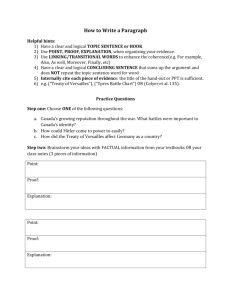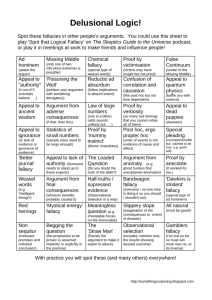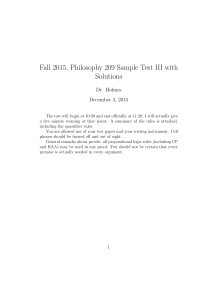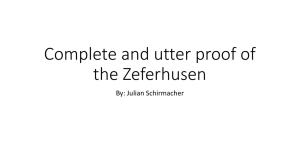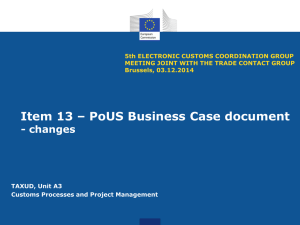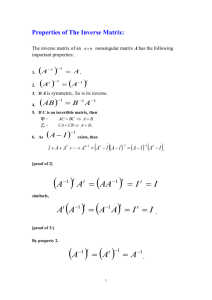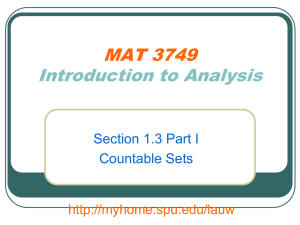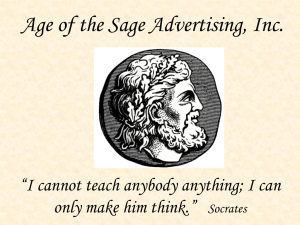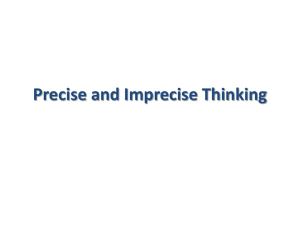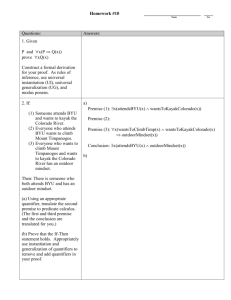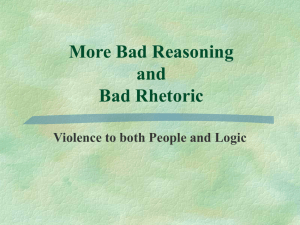Course Syllabus for Phil 10, LOGIC
advertisement
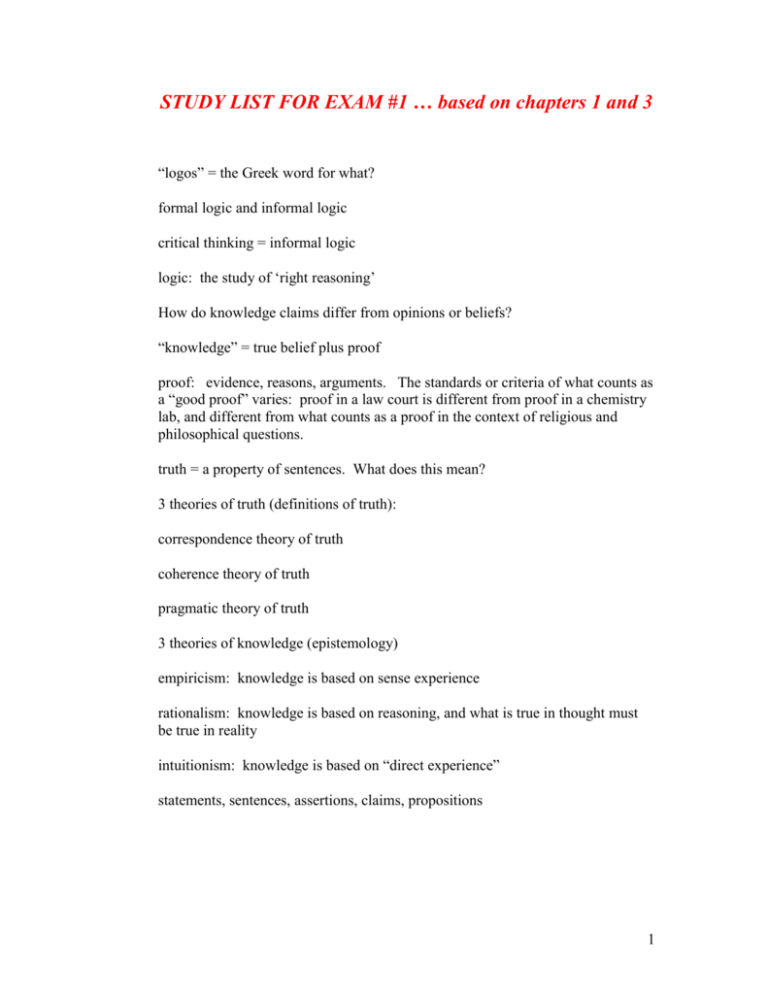
STUDY LIST FOR EXAM #1 … based on chapters 1 and 3 “logos” = the Greek word for what? formal logic and informal logic critical thinking = informal logic logic: the study of ‘right reasoning’ How do knowledge claims differ from opinions or beliefs? “knowledge” = true belief plus proof proof: evidence, reasons, arguments. The standards or criteria of what counts as a “good proof” varies: proof in a law court is different from proof in a chemistry lab, and different from what counts as a proof in the context of religious and philosophical questions. truth = a property of sentences. What does this mean? 3 theories of truth (definitions of truth): correspondence theory of truth coherence theory of truth pragmatic theory of truth 3 theories of knowledge (epistemology) empiricism: knowledge is based on sense experience rationalism: knowledge is based on reasoning, and what is true in thought must be true in reality intuitionism: knowledge is based on “direct experience” statements, sentences, assertions, claims, propositions 1 Chapter One issue = question Argument one premise, multiple premises the conclusion premise and conclusion indicators relativism: cultural and individual relativism subjective vs. objective and factual vs. non-factual statements/opinions Can you determine whether a set of statements is an argument? Identify the conclusion and premises of an argument. Determine what the issue is. When two people are debating, does the second person stick to the issue or change it? factual claims: publicly verifiable (what does this mean?) subjective claims that are factual, but not publicly verifiable aesthetic value judgments… what are they? moral value judgments matters of taste logical force versus emotional or rhetorical force of statements Chapter 3 purposes of giving a definition types of definition 2 vague claims and ambiguous claims semantic ambiguity syntactic ambiguity grouping ambiguity fallacy of division fallacy of composition 3
